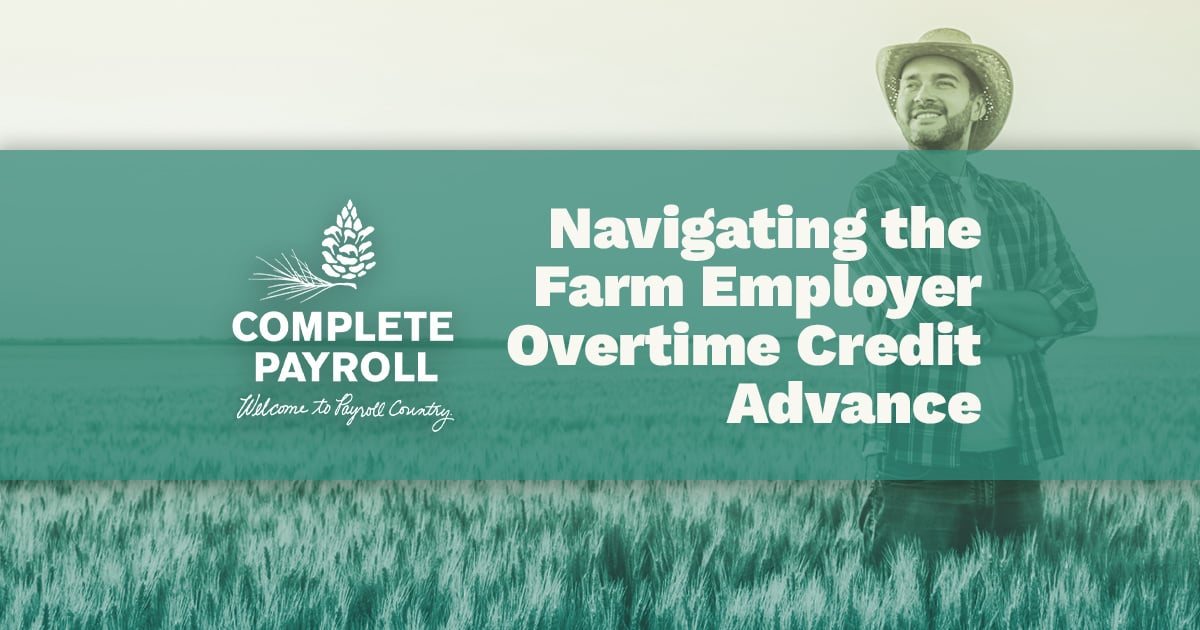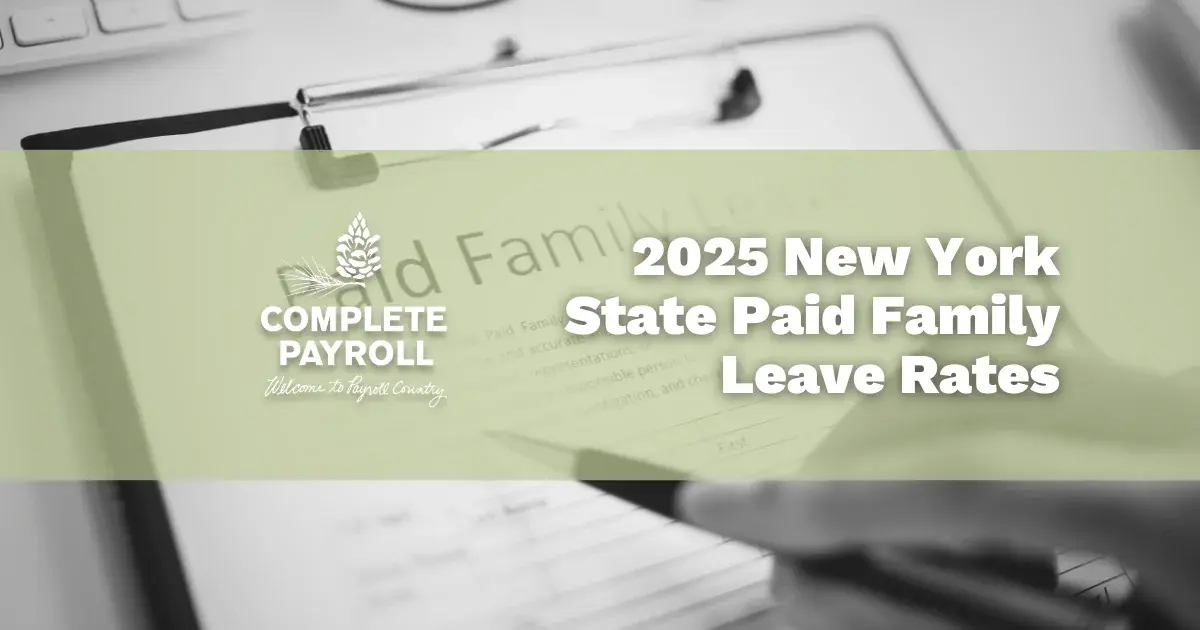Navigating Payroll and Tax Regulations in New York: A Comprehensive Guide
Written by Rick Fish, Jr., C.P.P.

To ensure a proper and accurate payroll in each state, employers must navigate federal and various state regulations and requirements, and navigating New York payroll regulations can be especially complicated.
New York State has many payroll laws that not only cover a variety of areas but also vary depending on certain cities, counties, and even industries. New York payroll regulations can be complex, yet it’s crucial that business owners and HR managers have a deep understanding of these regulations and rules to ensure they’re staying compliant.
Below, we have provided a New York payroll guide to help your business understand New York payroll laws and regulations and how to ensure you are staying compliant!
Understanding New York Payroll Laws: A Complete Overview
As a business operating in New York, you are responsible for ensuring that the right taxes and deductions are withheld from each employee's paycheck, each pay period. This may be challenging, since New York has a number of payroll laws. In addition to withholding federal taxes such as income, Medicare, and Social Security, there are several other payroll taxes and regulations you need to be aware of to ensure you are properly processing payroll.
In addition to federal taxes, these are some taxes and insurances that may need to be withheld from an employee’s paycheck or paid for by the employer:
- Federal Unemployment Insurance (FUI), this is an employer tax
- New York State Personal Income Tax
- Worker’s Compensation, this is an employer paid insurance policy.
- State Unemployment Insurance (SUI), this is an employer tax
- State Disability Insurance (SDI) - this is an employer insurance that the employer can deduct .5% to help pay for, typically .60 weekly or 1.20 bi-weekly.
- Paid Family and Medical Leave (PFML) - an additional part of an employer's short term disability policy, employee funded
- Local Taxes - NYC Income tax
- Metropolitan Commuter Transportation Mobility Tax (MCTMT)
Minimum Wage and Overtime Requirements in New York
Both minimum wage and overtime requirements vary from state to state, and employers need to make sure they are up-to-date and aware of the specific laws for their state. In addition to these varying from state to state, minimum wage rates can vary within the State of New York based on location.
Minimum Wage
The minimum wage varies depending on the type of compensation an hourly employee receives. For example, service workers who earn the majority of their compensation from tips have different minimum wage requirements than regular hourly employees. The minimum wage requirement in New York for employees is $15. However, for employees who receive the majority of their compensation through tips, the tipped minimum wage base amount in New York is $12.50 for service workers and $10 for food service employees.
However, for businesses operating in New York City, Nassau, Suffolk, or Westchester, the minimum wage requirements are different. The minimum wage in these cities is $16 for regular hourly employees, and the rates for tipped minimum wage are $13.35 for service workers and $10.65 for food service workers.
Overtime Requirements
Besides the federal overtime laws outlined in the Fair Labor Standards Act (FLSA), New York has its own overtime rules. For employees who are eligible for overtime, they must be paid 1.5 times their usual pay rate after working 40 hours in a work week. However, certain residential employees are only eligible for the overtime rate of 1.5 hours per hour after they’ve worked 44 hours in a work week.
Some positions may be exempt from both the state labor law and the FLSA overtime regulations. These jobs include:
- Executives
- Administratives
- Professional Employees
- Outside Salespeople
- Certain Government Workers (including federal, state, or municipal government employees)
- Religious Order Member
Navigating State Income Tax and Unemployment Insurance in NY
New York employers have to take out and pay personal income taxes on compensation to their employees, including gross wages, salaries, or bonuses. This applies to most NY employees—unless the worker is an independent contractor, then they are responsible for withholding their own taxes.
New York State Income Tax (SIT) rates can also be complicated to navigate, as these tax rates are adjusted for various junctions and income amounts. The New York payroll tax on income varies depending on location, residency, income, filing status (single or married), and how they filled out their W-2 form.
The state income tax rate ranges from 4% to 11.7%. Supplemental withholding rates may vary by jurisdiction; while the NY state rate is 11.7%, New York City’s is 4.25%, Yonkers is 1.95%, and nonresident supplemental withholding is 0.50%. All payroll managers and business owners should make sure they are calculating the New York payroll tax accurately according to their state and local laws.
A New York employer must provide State Unemployment Insurance (SUI) to eligible workers who meet state law eligibility requirements and are unemployed due to no fault of their own. The amount of unemployment insurance that a New York employer will have to pay depends on how long the company has been in business, with new employers paying a rate of 4.10% and experienced employers paying a rate between 2.10% and 9.90%.
The Importance of Accurate Employee Classification
A common mistake that payroll professionals make is miscalculating employees. How you classify an employee determines important details such as overtime availability, compensation, benefits, and tax withholdings. This means that classifying employees is a crucial component that greatly affects how payroll is processed.
New York payroll regulations require employers to classify whether an employee is exempt or non-exempt. Exempt employees are excluded from certain rights under the Fair Labor Standards Act, such as qualifying for minimum wage and receiving overtime pay. To be exempt, employees must be paid a salary over a certain threshold and work in either an administrative, professional, executive, or outside role.
In addition to the FLSA regulations, laws regarding exempt employees may vary from state to state. The FLSA only applies to employees working for an employer; independent contractors and volunteers cannot be classified as exempt.
Essential Payroll Reporting and Filing Requirements
There are a few key aspects that are required for accurate payroll reporting and filing. These include payroll records, payroll forms, payroll reports, and a tax filing service. The main priority of payroll professionals should be ensuring an accurate payroll each pay period, and properly utilizing these four things will help you with that!
Accurate and conclusive payroll records should be kept to ensure all employee information is up-to-date, including tax withholding forms, time records, pay rates, and applicable termination documents. Payroll forms, including NYS-45 (NYS withholding and unemployment quarterly tax forms), Form 941, Form 940, Form 944, and Form 1095-C, are all forms that HR managers should be familiar with, as well as 1099 forms, W-2, and W-3, and have filled out as necessary.
In addition, payroll managers should ensure all pay reports, such as company audits and financial details, are available and accurate for income tax audits. And lastly, having a trusted and efficient tax-filing service can make managing and processing payroll much easier and help ensure compliance.
NOTE: This is not an all-inclusive list of required items, but for NYS payroll, it’s a good place to start.
New York Paid Family Leave: What Employers Need to Know
Another aspect of NY state payroll regulations is calculating Paid Family and Medical Leave (PFML) taxes. This is a New York program that is funded by mandatory payroll deductions and is something that every payroll manager must factor into payroll.
The tax rate on this payroll deduction per employee is 0.373%, with a maximum contribution of $333.25 per year. This paid leave covers both full-time and part-time employees. Full-time employees who work a minimum of 20 hours a week after 26 consecutive weeks of employment, and part-time employees who work less than 20 hours a week after 175 consecutive or nonconsecutive days of employment, may take a maximum of 12 weeks of paid family leave.
Best Practices for Payroll Compliance NY
To conclude, ensuring an accurate payroll is crucial not only to ensure that your employees are accurately paid but also to ensure you are staying compliant with federal, state, and local laws regarding payroll deductions and taxes. Processing payroll accurately is a crucial part of operating a successful business. Yet, navigating the specific New York payroll regulations can be a challenge at times.
To guarantee that your payroll is being processed accurately, make sure that you have all necessary employee forms and documents filled out, that every employee is classified correctly, that overtime regulations are being met, and that you are taking out the correct taxes and deductions.
It may seem overwhelming to stay compliant with each of the NY state payroll laws and tax regulations, as there are several regulations and varying factors depending on location, even within New York, yet it’s important that businesses carefully go over each of these regulations so that payroll can be processed correctly to avoid any legal issues.
If you have questions or doubts after going through this New York payroll guide, please reach out to Complete Payroll to speak with a trusted payroll professional who can help give you personalized guidance!
















 Get Instant Blog Notifications
Get Instant Blog Notifications


